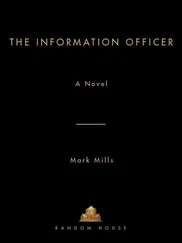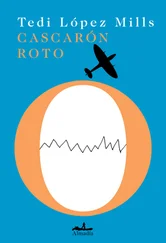Mark Mills - Amagansett
Здесь есть возможность читать онлайн «Mark Mills - Amagansett» весь текст электронной книги совершенно бесплатно (целиком полную версию без сокращений). В некоторых случаях можно слушать аудио, скачать через торрент в формате fb2 и присутствует краткое содержание. Жанр: Старинная литература, на русском языке. Описание произведения, (предисловие) а так же отзывы посетителей доступны на портале библиотеки ЛибКат.
- Название:Amagansett
- Автор:
- Жанр:
- Год:неизвестен
- ISBN:нет данных
- Рейтинг книги:5 / 5. Голосов: 1
-
Избранное:Добавить в избранное
- Отзывы:
-
Ваша оценка:
- 100
- 1
- 2
- 3
- 4
- 5
Amagansett: краткое содержание, описание и аннотация
Предлагаем к чтению аннотацию, описание, краткое содержание или предисловие (зависит от того, что написал сам автор книги «Amagansett»). Если вы не нашли необходимую информацию о книге — напишите в комментариях, мы постараемся отыскать её.
Amagansett — читать онлайн бесплатно полную книгу (весь текст) целиком
Ниже представлен текст книги, разбитый по страницам. Система сохранения места последней прочитанной страницы, позволяет с удобством читать онлайн бесплатно книгу «Amagansett», без необходимости каждый раз заново искать на чём Вы остановились. Поставьте закладку, и сможете в любой момент перейти на страницу, на которой закончили чтение.
Интервал:
Закладка:
Not as far as the last cast, but far enough if they were out there.
He started to reel in—inexpertly. When it came to rod-and-line fishing there was a certain truth to the phrase ‘beginner’s luck’. The jerky, unskilled actions of a child were, if anything, more likely to attract a fish to the bait.
It was a lesson first learned on the stubby harbor breakwater at Guéthary, back in the old country. His first fish, caught under the watchful eye of his father—a three-pound sea bream—enough to feed the family that evening. Conrad on his father’s lap at the table in the kitchen, swollen with pride, his father’s meaty paw wrapped around his little hand, steering the gutting knife. His mother slashing the sides of the fish then grilling it over coals, serving it with a garlic sauce, the cloves browned in a pan then crushed in the stone mortar. Everyone agreeing that it was the finest sea bream they had ever tasted, though the same couldn’t be said of the local txakoli, the sharp dry white wine made by their grandfather, and which both boys were permitted to taste for the first time. The wine driving them to early slumber, curled at their mother’s feet while she read to them, the logs in the hearth crumbling to embers.
Was that really how it had been? Or had sentiment got the better of him over the years? He no longer knew, or cared. He was entitled to the memory, for it was the last pleasing one he had of his mother before she was taken from them.
The menace, when it came, was from a completely unexpected quarter. The war rumbling away in a distant corner of France had barely touched their village, their lives. It was spoken of, but not feared. One boy, the mayor’s son, had headed north, carried on a tide of patriotism, only to lose a leg on a muddy hillside near Amiens. Remarkably, he survived and was shipped back to Guéthary.
In view of what followed, it would have been far better for all if that German artillery shell had caught Tomas Errekart squarely between the eyes, for when he returned home he carried Death with him.
In Guéthary, it became known as ‘Spanish flu’. A few miles to the south, across the frontier in Spain, it was referred to as ‘French flu’. The disease itself respected no boundaries, spreading like wildfire, laying waste to whole communities in a matter of days. To the puzzlement of all, ‘La Grippe’ appeared drawn to those in the prime of their lives, passing over the young, the elderly and the infirm; and the end came fast to those touched by its hand. A burning fever rapidly gave way to a crippling pneumonia that flooded the lungs.
Conrad’s father was the first in the family to be struck down. By then the whole village was firmly in the grip of the disease and Dr Barron was able to do little more than pay a cursory visit and wish their mother well in the trial ahead.
Terexa Labarde nursed her ailing husband for two days and nights, the boys ferrying buckets of icy water from the well in the yard. On the morning of the third day, she was too weak to wring out the rags with which she cooled his body. Breathing hard, her own clothes sodden with perspiration, she pleaded exhaustion and asked the boys to take over, instructing them from a chair across the room.
Just before noon, she slid silently to the floor.
She didn’t die immediately, but lay there on her back, the shallow rise and fall of her chest almost imperceptible, a reddish foam oozing from the corners of her mouth, the veins in her slender neck standing out like cords of rope. Antton insisted that he go for help, but she wouldn’t release his hand, a feat of superhuman strength given her condition. She wanted to die with her boys at her side. And that she did, just a few minutes later. Mikel Labarde, lost in delirium, did not witness his wife’s passing.
Antton displayed great presence of mind for a seven-year-old, turning his attention once more to their father, placing Conrad on bucket duty. Just before dusk he went for help, only to return an hour later in tears. The mayor, the doctor, even the priest, they were all dead. Guéthary was like a rudderless ship, with everyone looking to their own affairs, their own survival. Antton had been driven off, at gunpoint in one case, by people he’d known all his life.
The boys hacked ham from the bone in the pantry and settled in for another long night.
Mikel Labarde’s fever broke at dawn the next morning. He woke to find his naked body covered in damp rags, his two sons intertwined on the bed beside him, fast asleep, and his wife dead on the floor in the corner of the room. He was too weak to do anything but cry; Conrad and Antton were woken by his sobs.
Life never returned to normal, not for their father. He became sullen and withdrawn. In spring of the following year, when a second, more deadly wave of the disease swept the country, Guéthary was spared. But while others gave thanks for this, their father remained plagued by thoughts of those who had spurned his son that day.
It was something for which he could never forgive them, especially the lehen auzo, the ‘first neighbor’. Basque custom dictated that the occupants of the nearest house be treated as kin, and in return behave as such when the situation called for it. The lehen auzo had thought only of himself and his family when he turned Antton away, he had reneged on the relationship, causing mortal offence.
In a clear and vindictive break with tradition it was their father, not the lehen auzo, who carried the cross the day of their mother’s burial. Still weak from the flu, his black mourning cloak billowing in the stiff November breeze, he stumbled and fell twice at the head of the procession as it threaded its way from their house to the church.
In August he abruptly announced to the boys that they were moving away—to America. This news wasn’t as startling as one might have imagined, even to their young ears. Basques had been crossing the ocean since the Middle Ages, voyaging to the rich cod fisheries of the Grand Banks and pursuing whales into the treacherous subarctic waters off Greenland. Indeed, John Cabot’s celebrated discovery of Newfoundland in 1497 was greeted by the Basques with something approaching wry bemusement, for it was hardly a new-found-land, two of their own captains having dropped their anchors off the very same coast over one hundred years before. The Basques felt no need to justify this claim, nor did they doubt for a moment that the Vikings had been there well before themselves. Amerika had made rich men of many Basques over the centuries; and the belief that it still could was firmly embedded in their culture.
The boat and the gear sold promptly and well to a fellow tuna fisherman. The house would have gone for more had the highest bidder not happened to be the same individual who’d leveled his rifle at Antton less than a year before.
They sailed from Bordeaux on a converted whaling ship mobbed with American servicemen returning from the War, still drunk on victory. The crossing was rough, enough to blunt the merry-making and fill the narrow steerage compartments with the rank odor of sea-sickness. Sixteen days after she put to sea, and following a brief stopover in Havana, the Chicago crept past the Statue of Liberty and sank her anchor into the deep Hudson River mud.
On disembarking they were immediately ferried from the quayside over to Ellis Island. Conrad could only recall brief moments of the lengthy processing. He remembered being tagged, doctors prodding and poking, sticks of blue chalk raised menacingly, those marked with a cross screaming in protest as they were led away. And he could remember thinking, his heart drumming a terrified tattoo in his breast: What if they mark me and not Antton or Papa? They’ll take me away, I’ll never see them again, and then there’ll be nobody, not till I die and we all meet again in heaven. And the prospect of seeing his mother again washed through him, and suddenly things didn’t seem quite so bad.
Читать дальшеИнтервал:
Закладка:
Похожие книги на «Amagansett»
Представляем Вашему вниманию похожие книги на «Amagansett» списком для выбора. Мы отобрали схожую по названию и смыслу литературу в надежде предоставить читателям больше вариантов отыскать новые, интересные, ещё непрочитанные произведения.
Обсуждение, отзывы о книге «Amagansett» и просто собственные мнения читателей. Оставьте ваши комментарии, напишите, что Вы думаете о произведении, его смысле или главных героях. Укажите что конкретно понравилось, а что нет, и почему Вы так считаете.











